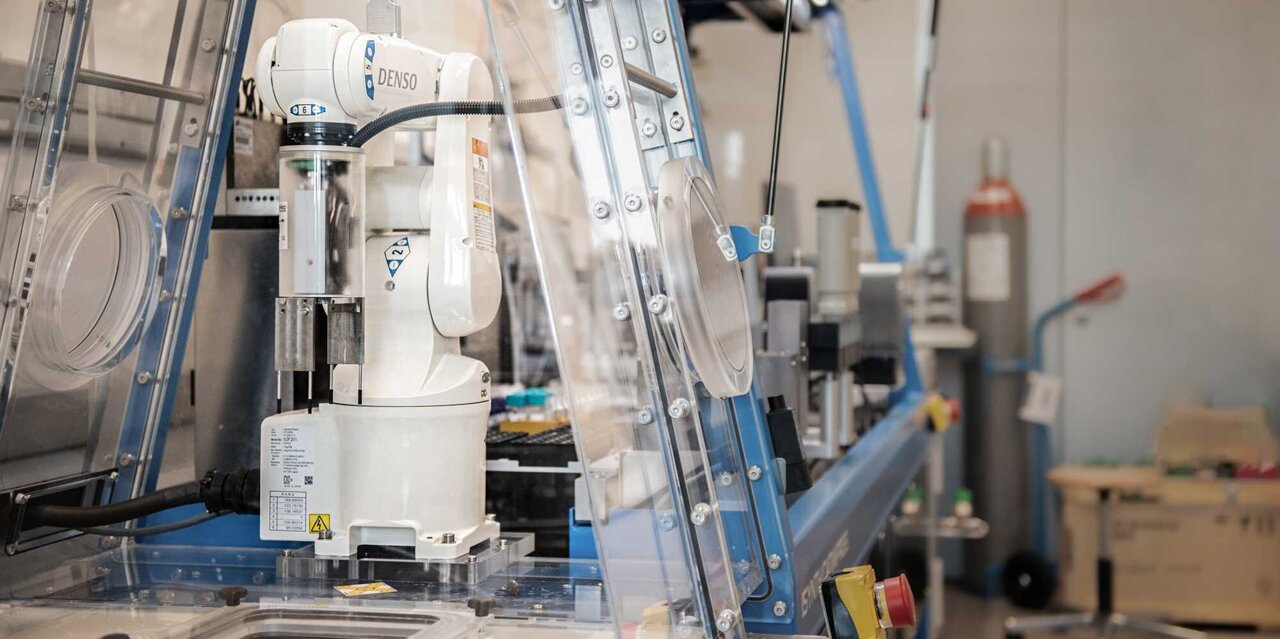Artificial intelligence and automated laboratory infrastructure play a significant role in accelerating the development of novel chemical catalysts. Researchers at ETH Zurich are utilizing these tools to create catalysts for the efficient and cost-effective production of methanol from CO2.
Catalysts are essential in chemistry as they expedite reactions and lessen the energy needed for reactions to occur. The specificity and effectiveness of a catalyst determine the suppression of unwanted side reactions.
Enzymes in nature enhance specific metabolic processes within cells, while metal catalysts are commonly used in chemical plants to boost product yield.
The team at ETH Zurich’s Swiss Cat+ technology platform, spearheaded by Paco Laveille, has devised a fully digitalized and automated approach to expedite the discovery of superior metal catalysts. By combining artificial intelligence for calculating promising catalyst compositions with an automated synthesis and testing laboratory, they have significantly reduced the time required for catalyst development.
Within just six weeks, the researchers successfully formulated approximately 150 catalyst compositions for methanol production from CO2. These optimized catalysts demonstrate cost-effectiveness, high conversion rates, and minimal byproduct formation, leading to substantial time savings compared to traditional methods.
Their innovative method has been detailed in two published papers, one in CHIMIA last year and the other in Chem Catalysis this week.
Methanol is a crucial component in a sustainable hydrocarbon economy, serving as a versatile fuel and a raw material for various organic compounds.
To navigate the vast chemical space and streamline the search for optimal catalysts, the researchers strategically preselected key elements based on expertise and economic viability. By focusing on cost-effective metals like iron, copper, and cobalt, along with specific doping elements and carrier materials, they narrowed down the possibilities to 20 million combinations.
Utilizing an AI algorithm based on Bayesian optimization, the researchers iteratively synthesized and tested catalyst compositions, continuously improving results through each round of experimentation. This approach not only refines previous outcomes but also introduces novel compositions to avoid stagnation in optimization.
The AI-assisted robot laboratory developed by the researchers provides high-quality, reproducible data essential for advancing catalyst research in sustainable energy applications, marking a significant step forward in the field.
For more information, refer to the research papers published in CHIMIA and Chem Catalysis by the ETH Zurich team led by Paco Laveille.
More information:
Paco Laveille et al, Swiss CAT+, a Data-driven Infrastructure for Accelerated Catalysts Discovery and Optimization, CHIMIA (2023). DOI: 10.2533/chimia.2023.154
Adrian Ramirez et al, Accelerated exploration of heterogeneous CO2 hydrogenation catalysts by Bayesian-optimized high-throughput and automated experimentation, Chem Catalysis (2024). DOI: 10.1016/j.checat.2023.100888
Provided by ETH Zurich
Citation:
AI-assisted robot lab develops new catalysts to synthesize methanol from CO₂ (2024, February 20)
retrieved 20 February 2024
from https://phys.org/news/2024-02-ai-robot-lab-catalysts-methanol.html
This document is subject to copyright. Apart from any fair dealing for the purpose of private study or research, no part may be reproduced without the written permission. The content is provided for information purposes only.










